 |
||||
|
||||
| 5.Valentine's Day resolution: Love him/her: but feed less |
||||
The Valentine’s time has arrived. Invariably love is associated with highly romantic candle light dinners. But we need to make sure that we are having the right, healthy kind of food. Here are Ten Steps, which keep you healthy and thus make sure that you are there for him or her longer and vice versa!
|
||||
| Energize yourself with Whole Grains | ||||
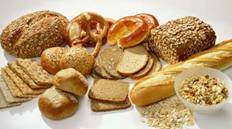 |
Whole grains yield big health benefits. Whole grains are better sources of fiber and other important nutrients, such as selenium, potassium and magnesium. So whenever you can, choose whole grains over refined grains. Whole grains are thought to lower cholesterol levels because of their high levels of soluble fiber and it contain high levels of antioxidants. It also gives you satiety feeling so that you can control the portion size. |
|||
Concentrate on Healthy Fats |
||||
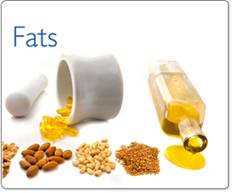 |
Different kinds of food contain different kinds of fats like saturated, polyunsaturated, monounsaturated and trans fats — when choosing fats, your best option is unsaturated fats: monounsaturated and polyunsaturated fats. This will lower your risk of heart disease by reducing the total cholesterol and low-density lipoprotein (LDL) cholesterol levels in your blood. Cut down the quantity of Saturated- animal products (such as meat, poultry, seafood, eggs, dairy products, lard and butter), and coconut, palm and other tropical oils
and trans fats like commercial baked goods (such as crackers, cookies and cakes), fried foods (such as doughnuts and french fries), shortening and margarine.
Prefer monounsaturated and polyunsaturated fats like olive oil, peanut oil, safflower oil, sunflower oil, canola nuts and seeds, cold-water fish (such as salmon, mackerel and herring), flaxseeds, etc |
|||
| Snack Smarter | ||||
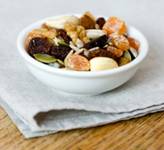 |
Eating small frequent meals help to balance your calorie intake throughout the day and also keep your blood sugar level balanced. Healthy snacks like fruits, low-fat yogurt with high-fiber cereal, peanut butter on a slice of whole wheat toast etc between meals help satisfy cravings, keeps your energy and mood high, and provides extra vitamins and minerals that may not be met during meals. | |||
| Never ever skip your Breakfast | ||||
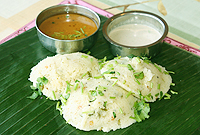 |
Eating breakfast helps fuel your day with vigor and alertness and helps brain to function well. When you skip breakfast, you may feel hungry later and be tempted to reach for a quick solution, such as chocolates, chips etc. In addition, prolonged fasting — which occurs when you skip breakfast — can increase your body's insulin response, which in turn increases fat storage and weight gain. |
|||
Use every opportunity to exercise |
||||
 |
Don’t skip your chance to walk. When you are in the office avoid phones for Intra/inter-departmental communication if in walkable distance. This will energize you. Prefer steps rather than going for lift. Tighten your abs for 30 seconds and then release, for your tummy exercise when you are in your cubicle. Stand up every half hour to stretch or walk around a bit if you are a couch potato. |
|||
| Eat fresh and eat seasonal | ||||
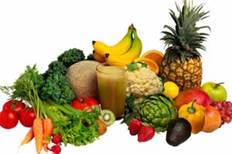 |
Include more fruits and vegetables in your menu. As you plan a meal, keep in mind that fruits and vegetables should cover half your dinner plate, and lean protein and whole grains should each take a quarter of your plate. | |||
| Prefer the Right Kind of Protein | ||||
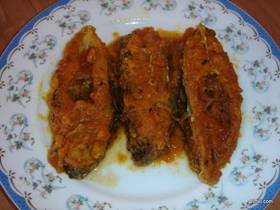 |
Add high-quality, lean protein to every meal to reap the health benefits. Choose options like fish, skinless poultry, lean meat, low-fat dairy, egg white and vegetarian sources like soy products ,paneer, legumes( including dried beans, seeds, peanuts) lentils etc. Adding these foods to your diet will help to keep your blood sugar in check, support healthy muscles, improve heart health, and keep you feeling full longer. |
|||
| Drink (or Eat) Your Fluids | ||||
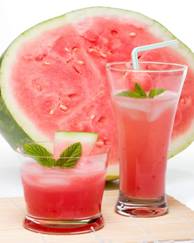 |
Water is so important for good health. Water is a nutrient that can be obtained from a wide variety of sources. Whether water enters your body as a liquid or as food, it still results in the same healthy benefits. Fill up on fluids to help your body cushion joints, make saliva, regulate body temperature, transport nutrients, and keep skin looking healthy. |
|||
| Select healthy foods When Dining Out | ||||
 |
Ask that your food be prepared with olive oil or sunflower oil rather than butter or fat. Trim visible fat off meat and poultry. Eat only a portion that's about the size of a deck of cards, since even very lean meat and poultry still contain fat. Select foods prepared with healthier cooking techniques, such as steaming, grilling, broiling, baking, roasting, poaching or stir-frying. Ask that your food be prepared without added salt, MSG or salt-containing ingredients. Limit condiments such as mustard, ketchup, pickles and sauces that are high in salt. Opt for fruits and vegetables instead of salty appetizers or snack foods. For drinks, stick to water, juices, skimmed milk, tea or coffee. Split a meal with a companion. |
|||
Alcohol Consumption: Keep Minimal |
||||
Moderate alcohol use seems to offer some health benefits, particularly for the heart. But too much alcohol raises the stakes, putting you at risk of adverse health consequences. Whether you can drink is up your doctor. Though moderate alcohol use seems to have some health benefits, anything more than moderate drinking can negate any potential benefits. Be cautious because alcohol consumption may lead to serious health problems. |
||||
|
|
||||